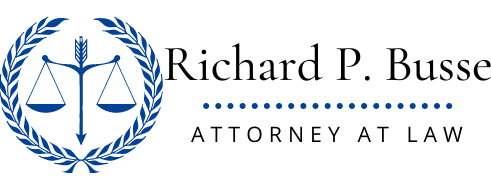Why You Need an Estate Plan
Richard P. Busse • August 18, 2020
A common misconception is that only the rich and wealthy need to concern themselves with estate planning. This misconception can result in significant unnecessary, and completely avoidable costs to your estate and additional burdens for your loved ones as nearly everyone can benefit from the development of an estate plan. Young or old, wealthy or middle class, an estate plan can reduce the taxes and expenses of an estate, simplify and speed the transfer of assets to the next generation and help ensure that beneficiaries are protected and taken care of as well as carry out your own wishes concerning your health care.
Having an estate plan is among the most important things you can do for not only you but your loved ones as well. It is, however, a task that many dread and put off dealing with until later in life. If there is one thing that I can recommend, it is that it is never too early to start planning, but it can be too late. Do you have an estate plan that will provide for your loved ones in the event of death or upon incapacity?
If you are new to the concept of estate planning, it is easy to get overwhelmed, but don’t let that dissuade you. An easy place to start is with the basics. An estate plan essentially defines how you want your assets to be owned, managed and preserved during your lifetime and how you want them disbursed after your death as well as how you wish to be cared for at the end of your life. The plan also deals with the important decision about who will look after your estate. Accordingly, there are five main estate documents:
1. Last Will and Testament
2. Durable Power of Attorney
3. Living Will
4. Health Care Representative
5. Living Trust
The most well know and identifiable document is of course the Last Will and Testament. It is a testament to show your competence and knowledge of your estate and loved ones by naming them all and appointing a personal representative, sometimes referred to as an executor, who administers the handling and distribution of your assets upon your death. They can also appoint guardians of minor children who will oversee their care and custody until they become adults. One major negative with a Last Will though is the fact that it must be “probated” or taken through probate court by opening an estate case with your local county court in order for your assets to be distributed. This can take many months or even years to complete. With financial assets, this can best be avoided by appointing transfer-on-death beneficiary(s) for your accounts. With real estate, here in Indiana this can be dealt with by either a transfer on death deed or a quit claim deed, depending on your circumstances.
The Durable Power of Attorney appoints a spouse, a family member, friend, or advisor as an agent to act on your behalf for financial and legal matters. This can take effect upon signing, or “execution”, or upon incapacitation, to which you can specify within the document what that may mean.
The Living Will deals with your end-of-life healthcare wishes. It covers pain relief and/or whether you would want a ventilator, feeding tube or resuscitation in the event that you are in a situation where death is approaching soon.
A Health Care Representative document appoints a person or person(s) that you trust to make medical decisions for you when you no longer can, automatically giving that person access to your medical records. Some institutions, though, may require more documentation for full access to medical records such as a HIPAA, or Health Insurance Portability and Accountability Act, document.
And finally, there is the Living Trust. A living trust holds and provides management of your assets for your benefit while you are alive and names the people who will receive the property when you die. These trusts can also help with planning for incapacity. In some states, they also are used to simplify probate. While the living trust has advantages, such as dealing with real estate in other states, some matters can only be covered in a will which can be the best option.
It can be incredibly important to have proper documents in place, although each estate and each individual and family is different which is why it is equally important to consult an attorney regarding your estate planning. Depending on the complexity of your estate and situation, you may need a Trust to explicitly detail your estate and how it should be managed, or you may just need a Last Will and Testament. The same goes for all of your estate documents. It is also important to remember to periodically review and, if need be, update your existing estate plan. Changes in Indiana as well as federal law, especially estate tax changes at the federal level and life and family changes such as marriage, divorce, or the birth or death of a family member may make it necessary for you to revise your plan.
Feel free to call my office at 219-531-1723 to discuss your estate planning needs or to make an appointment. My office is located at 7 Napoleon Street, Valparaiso, Indiana, just a block north from the Lincoln Flats restaurant, on the red brick street.




Share On: